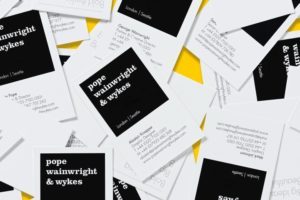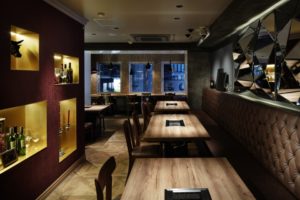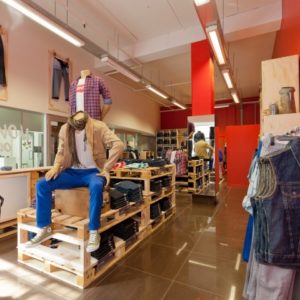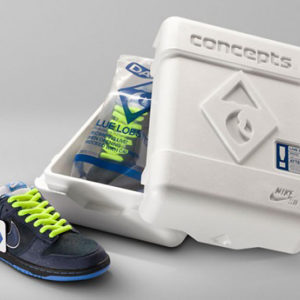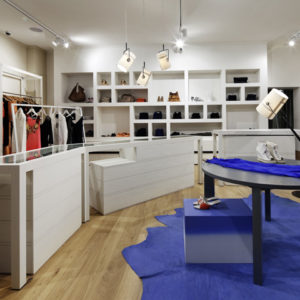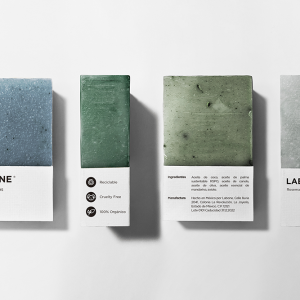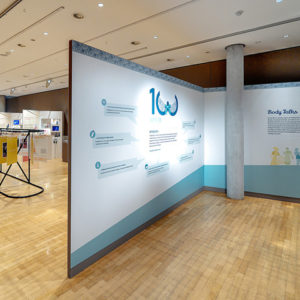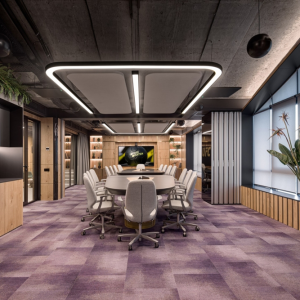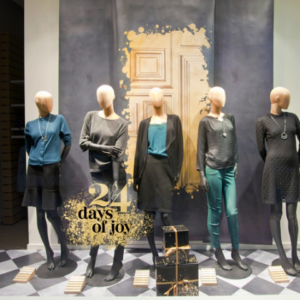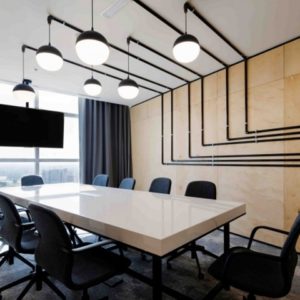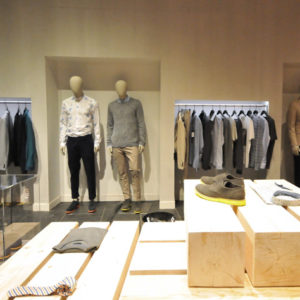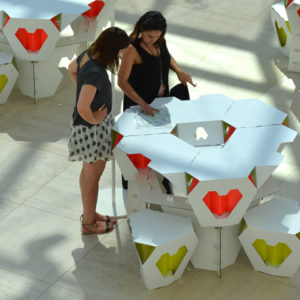
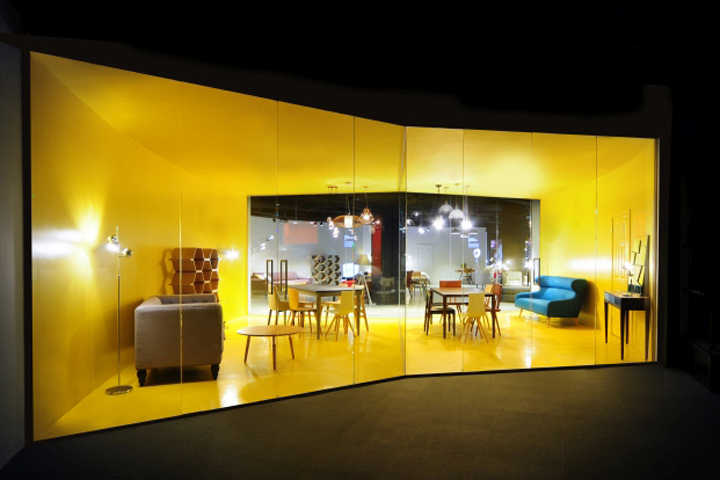

Architects Bureau de Change complete MADE flagship store in Soho.
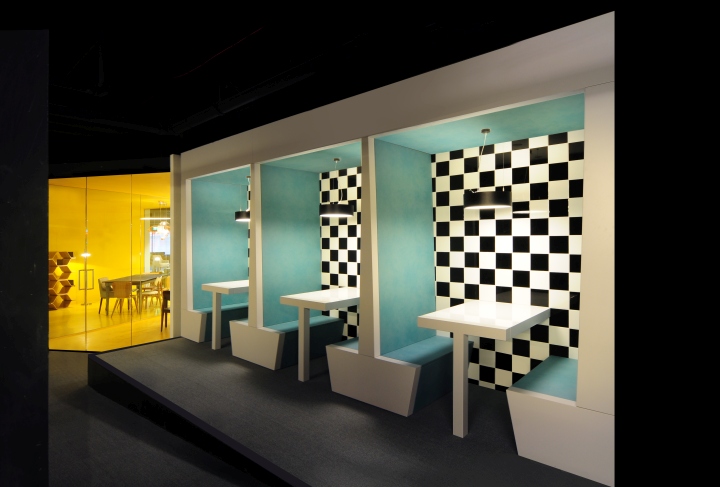
The brief for the new MADE store is to re-evaluate the concept of a ‘showroom’ and incorporate technology in a way that would genuinely add value to the customer experience. Located in one of Europe’s busiest shopping districts, the new store experience begins with the external windows. Rather than display product behind the glass, the glazing itself becomes a full scale representation of the product in an intricate permanent installation. Commenting on the design, Bureau de Change co-founder, Billy Mavropoulos said: “This is such a bustling street, with so many stores vying for your attention, we wanted to produce something unexpected – an idea that would set it apart from the traditional format of lots of products in a display. “Instead, we have taken a single idea – of the products pushing through the glazing – and filled each window with it.
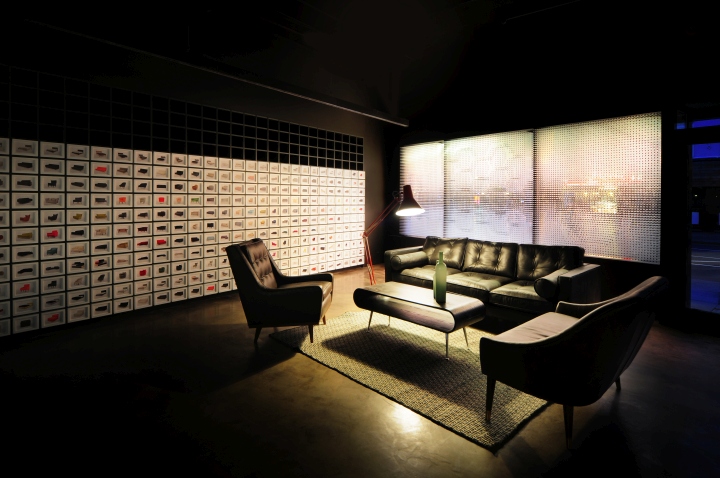
You still get a sense of the products beyond the frontage, but the views are more intriguing, more oblique.” Almost 40,000 hollow clear plastic rods puncture the 10 windows of the store to create three-dimensional ‘pinpressions’ (similar to the 1980’s executive PinArt toy) of some of MADE’s most iconic pieces of furniture. Inside, the store blends physical product with full scale projections in a series of room sets. Customers are guided through a network of white-washed walls – curved like the pages of a book (referencing the literary history of Charing Cross Road). These walls provide a clean backdrop for the furniture and a canvas upon which products can be projected. The use of large format projections mean a single room can show multiple combinations of product changeable on demand. This opens up the possibility for customers to experience the full product catalogue without requiring a hangar-like showroom or costly central storage facilities.

Katerina Dionysopoulou, co-founder of Bureau de Change added: “MADE has always been ahead of the curve, and so the Soho store had to offer something more than the typical high street experience. For us, the design challenge was how to display in-store, where space it at a premium, the breadth of content you can on a website. “The projections provide a true, adaptable representation of the products, at the right scale, in the right place. Without them, the room sets feel unfinished, so for us they were the missing link to achieving a flexibility you can normally only achieve online.”
Customers are provided with tablets on which they can browse and find further product information about their favourite pieces.

Alongside the digital experience, a large physical furniture sample archive provides an opportunity to touch and feel fabrics and explore colour swatches to help decision-making. Chloe Macintosh, MADE.COM Co-Founder and Creative Director, said: “Taking on a central London location is a huge step for us as a brand. We see it as an opportunity to meet with a broader range of customers and for them to experience the MADE way of thinking. “The space was designed on a tight budget and timeframe but Bureau de Change brought a lot of ingenuity and flair and turned an old rundown bookstore into a crisp, spacious and inviting design for our customers.”
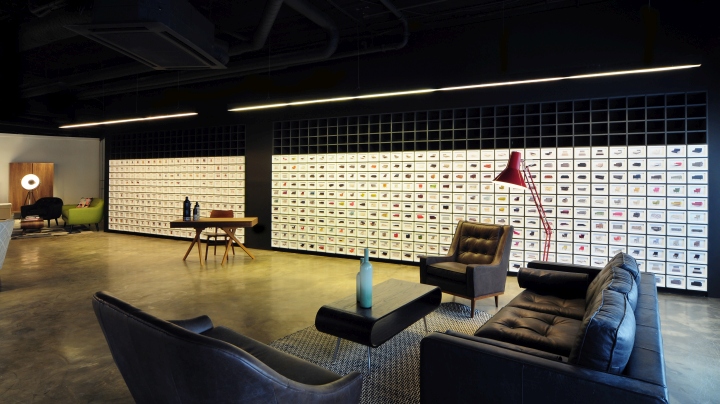
Bureau de Change was founded by architects Katerina Dionysopoulou and Billy Mavropoulos. Its work is a direct product of the founders upbringing, passions and experiences – combining the pragmatism and formality of their architectural training with a desire to bring a sense of theatre, playfulness and innovation to the design of spaces, products and environments. The result is a studio where rigorous thinking and analysis are brought to life through prototyping, testing and making (weaving, casting, welding, carving). Recent projects have used bespoke cast brickwork, woven furniture and rapid prototyping to form sculptural surfaces.
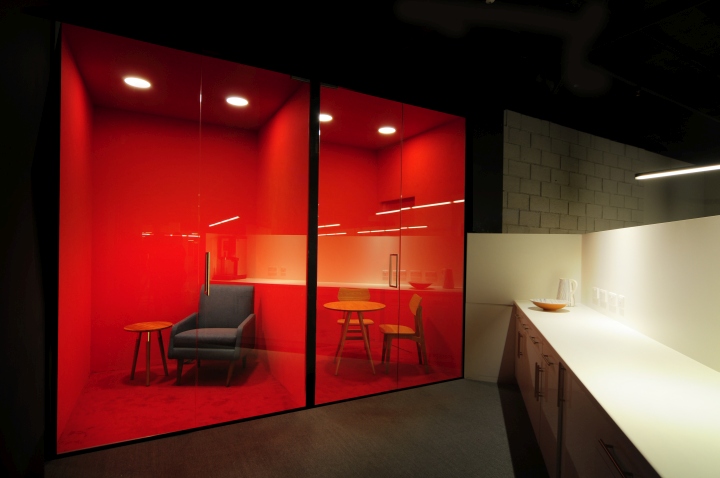
MADE.COM is the brainchild of 31 year-old entrepreneur Ning Li (CEO) and Brent Hoberman, co-founder of Lastminute.com. Together with Ning’s business school friend Julien Callede, Chief Operations Officer, and former architect Chloe Macintosh, Creative Director, they raised the funding and founded the firm in March 2010. MADE.COM’s vision is to make great design accessible to everyone. MADE.COM has collaborations with some 50 designers and works closely with manufacturers across the world to offer consumers unique furniture and homeware products at prices up to 70% off the typical high street price for equivalent products MADE.COM operates a “fast fashion” business model including the ability to adapt to changing trends quickly. New lines can take just four months from design to reach the market, while website data helps cut less popular lines quickly.
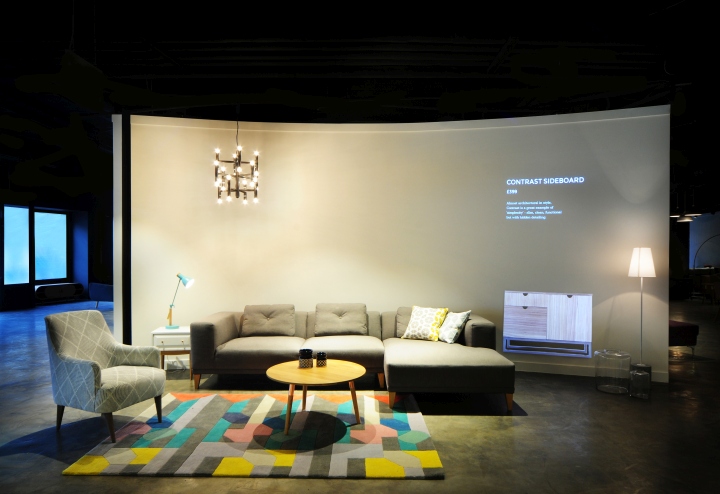
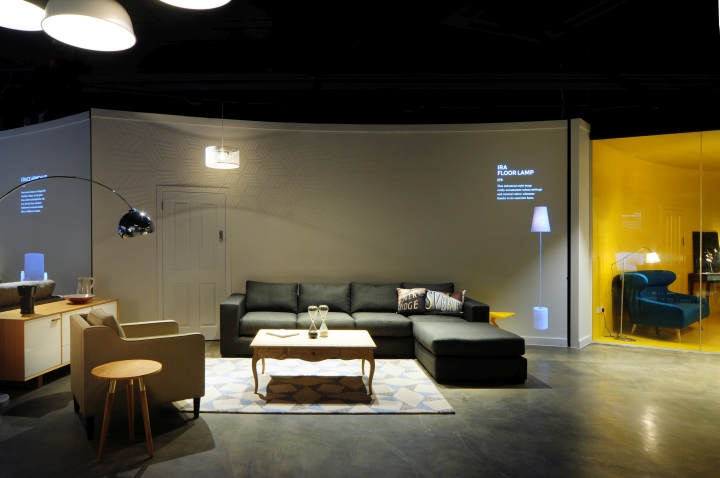
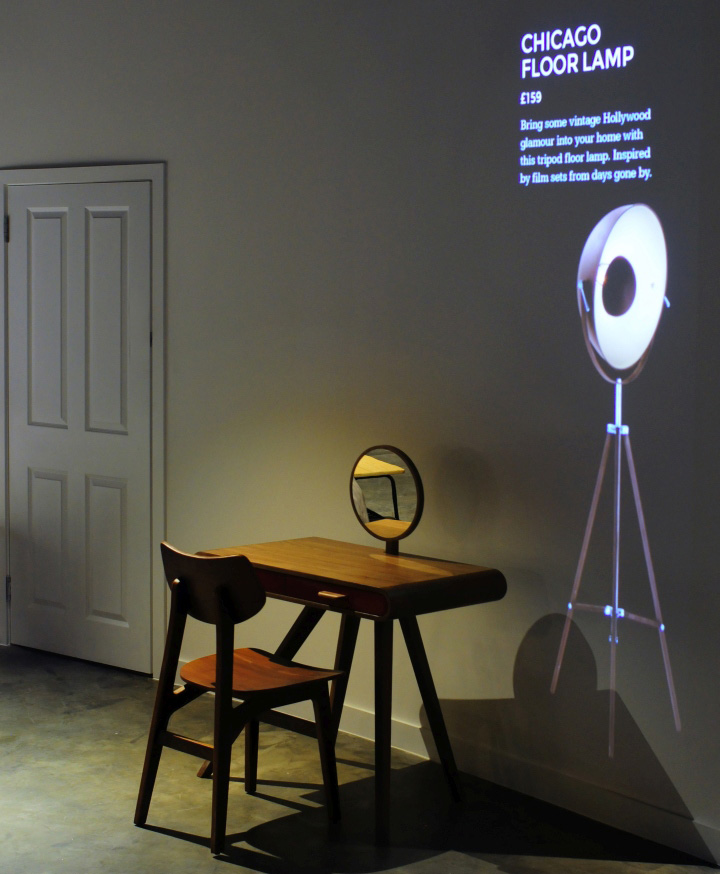
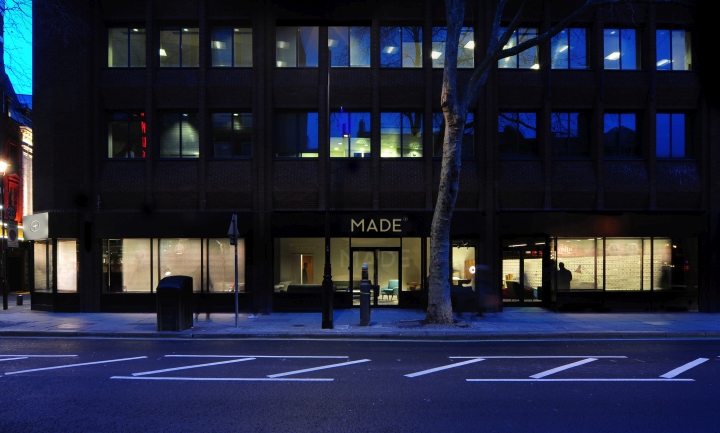
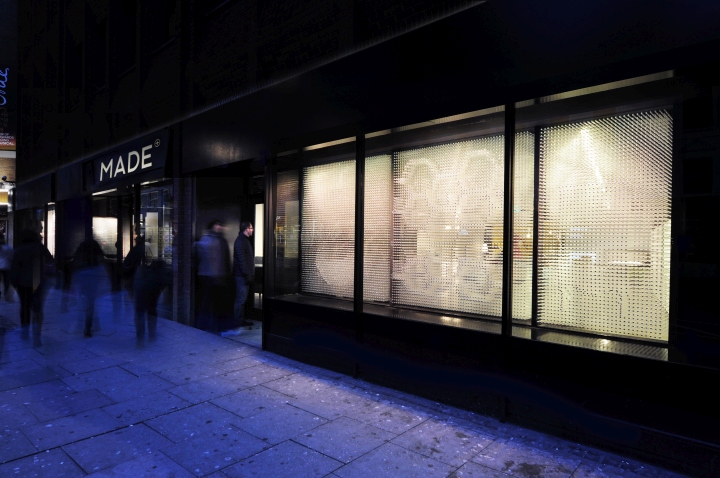













Add to collection
